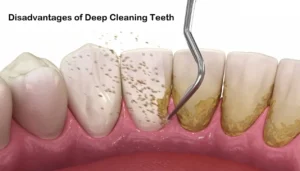What Level of Alkaline Phosphatase is Dangerous? Let’s Break It Down

So, you’ve just gotten your blood test results back, and there it is—alkaline phosphatase (ALP)—staring at you like a cryptic emoji. Is it a , a , or a full-on ? Before you fall down the Google rabbit hole (we’ve all been there), let’s talk about what ALP really means, when it’s time to worry, and why your liver and bones might be gossiping behind your back.
Alkaline Phosphatase: The Body’s Chatty Enzyme
First off, let’s demystify this tongue-twister. Alkaline phosphatase isn’t a fancy cleaning product or a rare gemstone. It’s an enzyme—a tiny worker bee in your body that helps with processes like breaking down proteins and keeping your bones strong. You’ll find it hanging out in your liver, bones, kidneys, and even your digestive system. Think of ALP as that friend who won’t stop texting when something’s wrong. If levels spike, it’s basically your body saying, “Hey, maybe check this out?”
Normal ALP Levels: The “Meh” Range
Normal ALP levels aren’t one-size-fits-all. They vary by age, gender, and even whether you’re pregnant. Here’s the gist:
- Adults: 20–140 units per liter (U/L)
- Kids and teens: Up to 3x higher than adults (blame growth spurts and rebellious bones)
- Pregnant folks: Levels can climb, thanks to the placenta joining the enzyme party.
If your results are in this range, take a breath. Your body’s probably just doing its thing. But is your ALP throwing a pool party at your lab report? Let’s dig deeper.
When Does ALP Become a Drama Queen? The “Danger Zone”
Here’s where people panic: “My ALP is 200! Am I doomed?” Not necessarily. Context matters. For example:
- Mild Elevation (1.5–2x normal): This could be a fluke, a medication side effect (looking at you, Tylenol), or even a hearty meal before the test.
- Moderate Elevation (2–3x normal): Now we’re getting nosy. This might hint at liver issues (like hepatitis), early bone disease, or your gallbladder throwing a tantrum.
- Severe Elevation (3x+ normal): This is the zone. Think blocked bile ducts, aggressive bone disorders (Paget’s disease, anyone?), or tumors.
But here’s the kicker: ALP alone doesn’t diagnose anything. Doctors play detective with other clues—like symptoms, additional tests (GGT, ALT), and whether you’ve recently binge-watched Netflix instead of sleeping.
Why Is My ALP High? The Usual Suspects
If your ALP is giving Main Character Energy, here’s what could be backstage:
- Liver Loves Drama: Cirrhosis, hepatitis, or a blocked bile duct can turn your liver into a soap opera star.
- Bone Brigade: Growing kids, fractures, or diseases like osteoporosis or Paget’s disease crank up ALP.
- Meds Being Messy: Antibiotics, birth control, or anti-seizure drugs can hijack your levels.
- Pregnancy Power-Up: The placenta produces ALP, so don’t freak out if you’re baking a human.
Fun fact: Even a broken bone can temporarily boost ALP. So, if you’ve recently face-planted off a skateboard, your bones are just yelling, “We’re busy here!”
“Help, My ALP is High!” – What Now?
Don’t cancel your life plans yet. Here’s your game plan:
- Don’t Ghost Your Doctor: They’ll likely rerun the test (because lab errors happen) or order imaging (ultrasounds, X-rays) to snoop around.
- Play Symptom Bingo: Jaundice? Bone pain? Fatigue? Track these—it helps connect the dots.
- Lifestyle Tweaks: Cut back on alcohol, avoid Tylenol overdoses, and maybe skip that fourth cup of coffee. Your liver will thank you.
And no, chugging kale smoothies won’t “detox” your ALP. Sorry, wellness influencers.
The Big Picture: ALP Isn’t the Villain
Here’s the takeaway: ALP is a messenger, not a diagnosis. It’s like your car’s “check engine” light—it tells you to investigate, not to sell the vehicle. Even sky-high levels can be managed if caught early.
And remember, everyone’s body has quirks. My college roommate once had ALP levels that swung like a pendulum—it turns out she just needed more vitamin D. Crisis averted.
Final Thoughts: Keep Calm and Trend On
At Trends24, we’re all about cutting through the noise. So, if your ALP is high, don’t let Dr. Google spiral you into a panic. Trust your actual doctor, ask questions, and maybe laugh at the absurdity of enzyme names. After all, life’s too short to stress over every lab result—unless your ALP is auditioning for Grey’s Anatomy.
Stay curious, stay healthy, and keep those enzymes in check!
—Trends24: Because health trends shouldn’t require a decoder ring.






